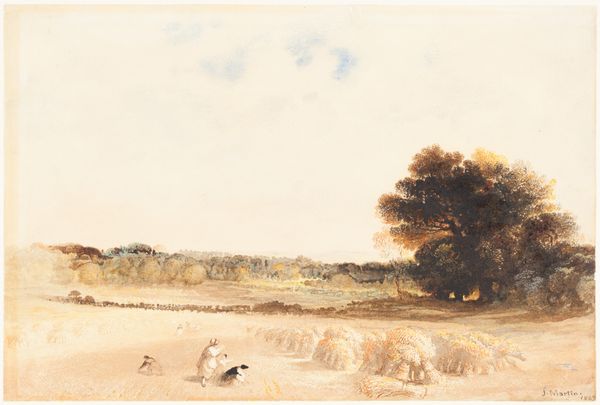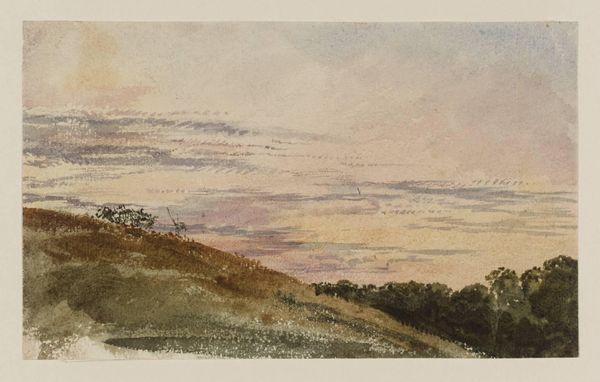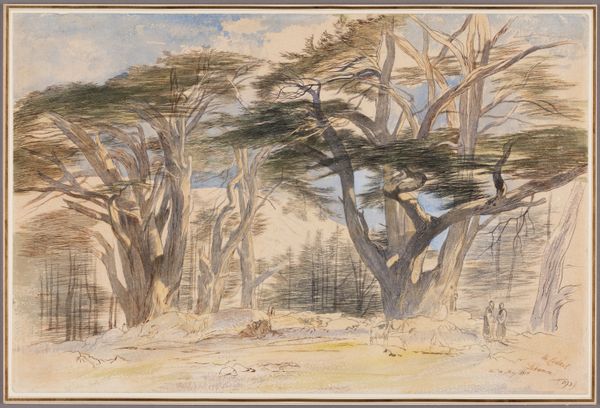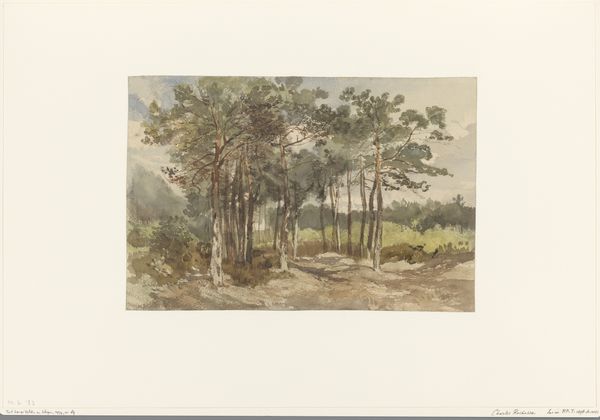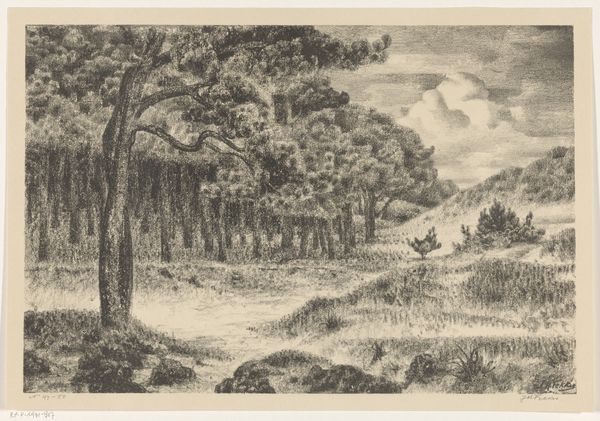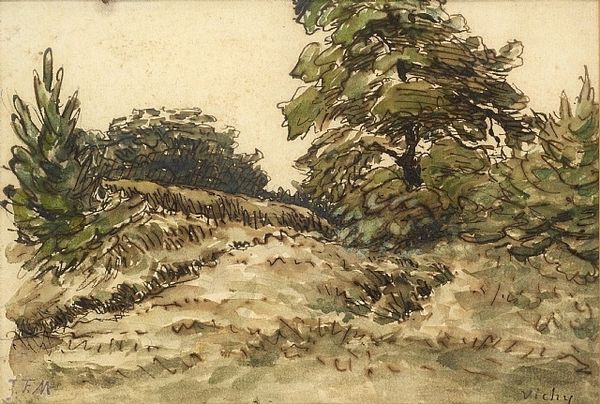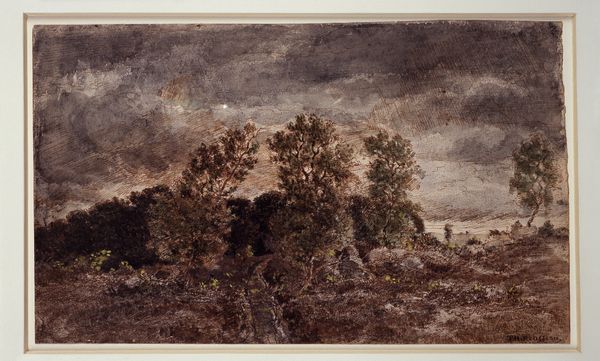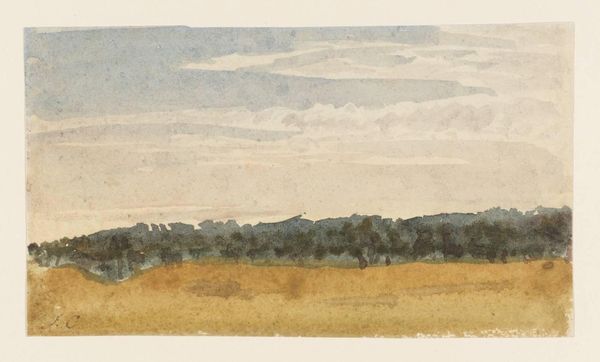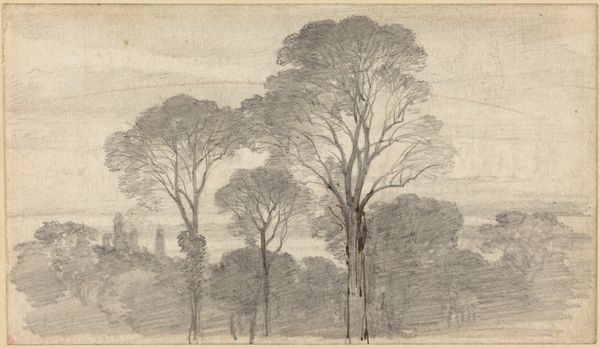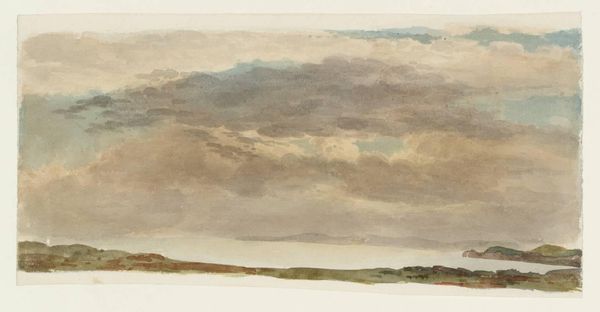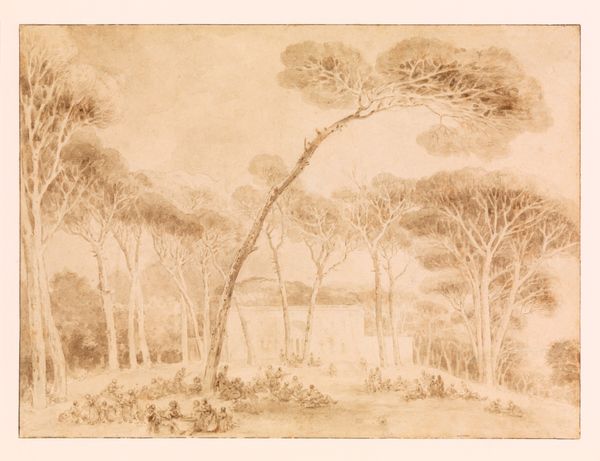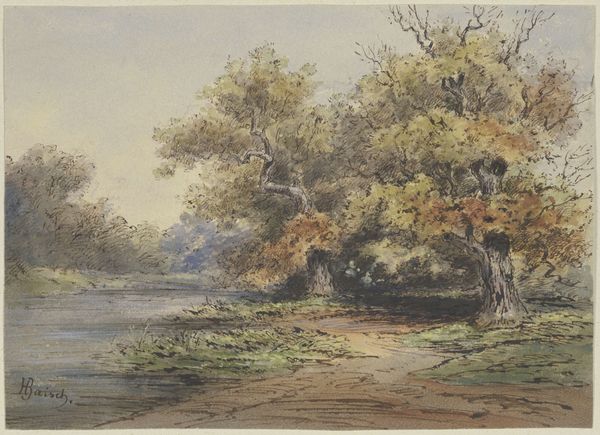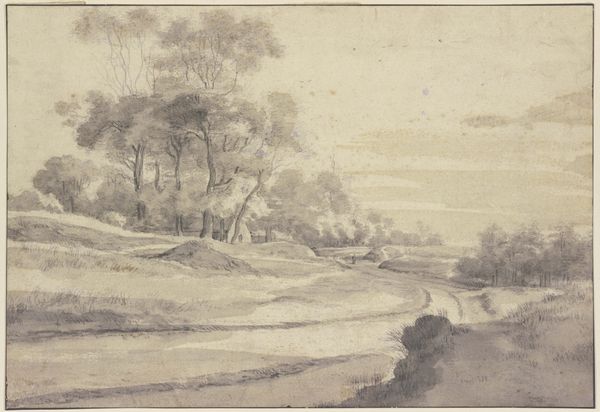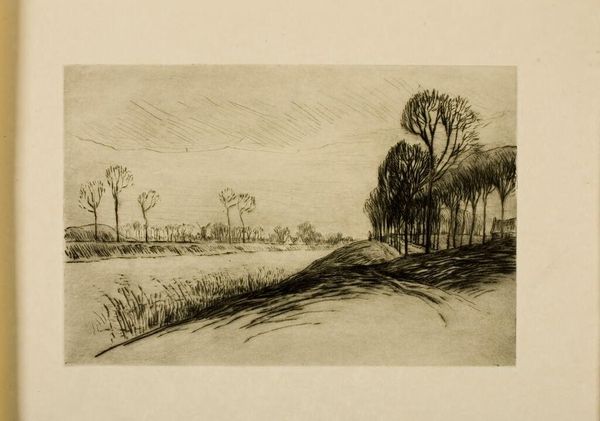
Dimensions: support: 180 x 264 mm
Copyright: NaN
Editor: Here we have George Richmond's "A Field near Margate," a watercolor landscape. It feels… wistful. What do you see in this piece, considering its place in art history? Curator: Well, think about the context. Richmond was working in a time of immense agricultural change. This tranquil image, then, could be interpreted as a romanticized view of rural life, contrasting sharply with the realities of industrialization. Editor: So, it's less about the field itself and more about what the field represents at that moment in time? Curator: Exactly. How did artists in urban centres depict rural landscapes during this same period? Editor: That makes so much sense! Thanks, this has opened up a whole new way of seeing the painting. Curator: Indeed. It is vital to consider the politics of imagery.
Comments
tate 10 months ago
⋮
http://www.tate.org.uk/art/artworks/richmond-a-field-near-margate-t08272
Join the conversation
Join millions of artists and users on Artera today and experience the ultimate creative platform.
tate 10 months ago
⋮
Although a highly successful portrait painter, Richmond drew and painted landscapes throughout his career. Often, though not always, such landscapes looked back to the intensely spiritual view of landscape which Richmond shared in common with Samuel Palmer when he was one of the Ancients. This work can be associated with Richmond's holiday near Margate, Kent in the late summer of 1850 when the artist's infant daughter died from whooping cough. The watercolour has faded but the bare earth, the wind-bent trees and the corn-stacks in the foreground showing that the harvest has been gathered, create a sombre mood which might be attributable to this event. Gallery label, September 2004
